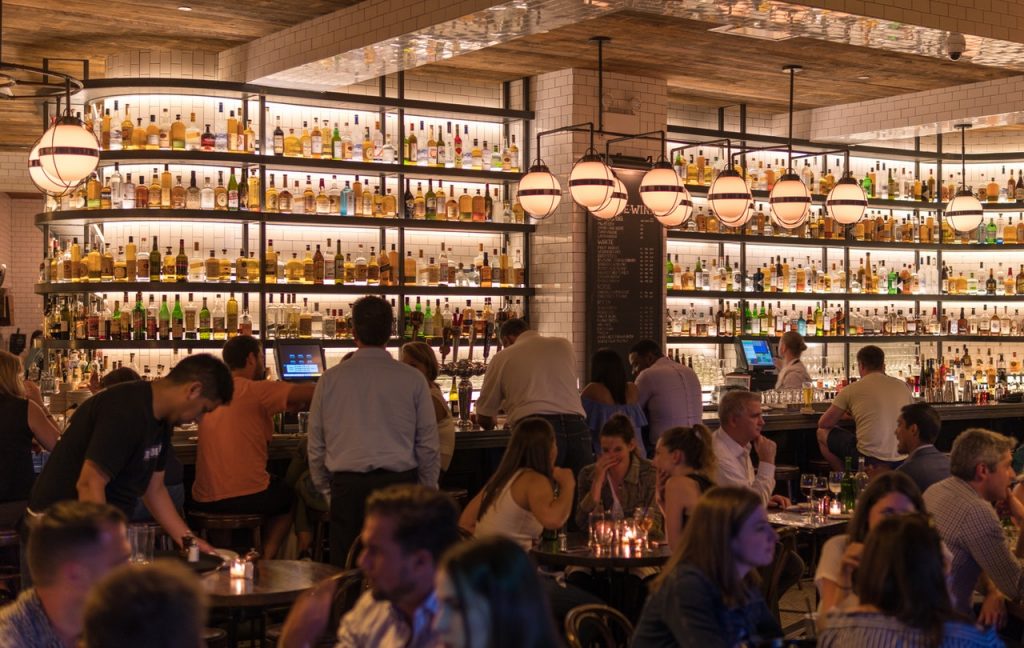Following your dreams isn’t as simple as, say, quitting your job, coming up with a plan, and trying to make your dreams come true. After all, money plays a big factor and without it, your business could sink before you even begin. There’s also competition, rules, regulations, laws, and the list goes on. While everyone’s path is different, here are seven things to consider before opening a bar or restaurant.
The Constant L Word: Location
You’ve heard it before and you’re going to continue to hear it. Location is, to say the least, important when it comes to the success of a bar or restaurant. Picking a location with a lot of foot traffic is a top priority, but you also need to consider accessibility and parking, rent and utility costs, and if there’s a need for your type of bar or restaurant. For example, if you want to open an Italian restaurant but there are already established ones near your location, then you might struggle to get customers.
It’s also important to pick a location that’s close to your distribution centers, whether it be a Denver, CO grocery store or Woodbridge, NJ liquor store. There are so many factors that come into play when it comes to this specific area and you have to consider all options. Even if you own a bar and your product is delivered to you, it doesn’t hurt to have a liquor store near your location just in case you run out of anything in between shipments.
Marketing and Advertising
Many bars and restaurant owners only want to think about serving drinks and cooking food, but there are other aspects of running a business. Marketing and advertising are essential departments and are easier to incorporate thanks to the internet. Similar to your location, you might have the best recipes, but it won’t matter if customers don’t know your business exists.
Your Product Is Important, but Focus on Quality Customer Service
Yes, product and atmosphere are essential, but you also need to focus on quality customer service. No matter how much experience your employees have, you need to take the time to train them properly, which includes explaining how to greet customers and values at your establishment. Customers want a good product, but they’ll also be willing to let things slide (such as an order mistake) if quality customer service is offered.
Consider All the Costs
While this is something you should heavily target in your business plan, it’s hard to think of everything when you’re considering opening a bar or restaurant. As an example, expenses such as hiring DJs and food licenses for bars can’t go unnoticed. If you’re starting a restaurant, then maintenance is required and you’ll need a grease trap service in your kitchen from time to time. These might not be obvious, but it helps to consider all costs that could arise.
Learn Everything About Business and Your Industry
This might sound obvious, but too many people start before they’re ready, and doing so in the bar or restaurant industry can be costly and doom your company. You likely already know everything there is to know about drinks and/or cooking, but you also need to learn about running a business and your specific industry. It’s also beneficial to take a business or entrepreneurial class, and you should never stop learning as business tactics, trends, and industries change all the time.
What Makes Your Establishment and Theme Special?
Is it a century-old family recipe? Is it the theme of the bar (such as a stock market bar)? Maybe it’s home-cooked meals and quality customer service. While there are certain rules and blueprints you can follow to increase your chances of succeeding, some businesses succeed and some fail and owners don’t know why. Some of it is luck, being in the right place at the right time, and some of it is having that “it” factor. What makes your establishment or theme special? Maybe it’s your story and your restaurant’s roots.
Passion or Business Opportunity?
Why do you want to start a bar or restaurant? Is it passion or business-related? It can be both but it’s important to know your “why” when starting any type of business. Knowing your “why” can help you stick to your values and will give you a better idea of what your business means to you. After all, if you’re getting ready to invest a lot of money in a bar or restaurant, you should know every detail and why you’re about to go on this journey.



















